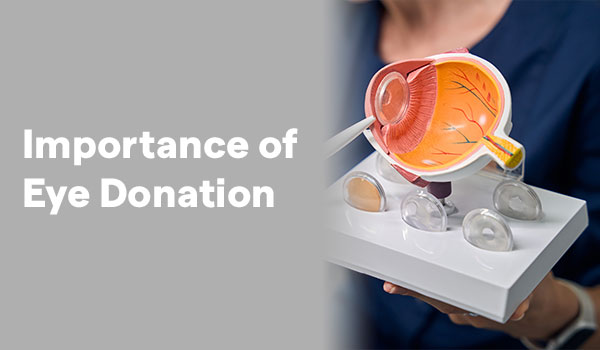
Corneal blindness is the type of blindness that is occasioned by diseases of the cornea which is the anterior tissue in the eye. Corneal ulcers may cause corneal opacity and subsequent blindness is and cannot be reversed but the condition can be effectively treated by corneal graft from a donor eye.
In cases where a person loses their vision whether through damage or disease on the cornea, the corneal transplant operation is helpful since the affected cornea is replaced with a healthy one obtained from a deceased person. Corneal transplantation is one of the most successful kinds of transplant surgery however the demand for corneal grafts due to eye donation is extremely low.
At present, approximately 20,000 transplants are done in India, though it needs more than 200,000 transplants every year. The shortage is mainly because of the following factors; requests for eye donations are not met due to the existing gap in the demand and supply of the same largely due to ignorance and general public health concerns. As more people offer their eyes for donation, those who develop various forms of blindness as a result of corneal diseases can regain their sight.
Eye donation should be encouraged since it is scientifically proven that the cornea can only be surgically harvested after the death of the donor, and no harm will occur to the face or vision of the donor within 6 hours of harvesting the cornea. Eyes can be pledged by adults of both sexes, children, and even by elderly people because the corneas of the elderly can also be used to successfully transplant a sight.
Eye donation does not affect funeral arrangements such as having a body viewed before being cremated. Some people believe that eye donation means that one cannot be buried with the lips and mouth closed as in an open casket. If eyes are donated following death, only the corneas are normally excised from the body. It’s important to note the entire eyeball is not removed. Indeed, an experienced eye bank technician simply takes out the healthy cornea and leaves the remaining part of the eye. It is glasses shaped entity donated by another person and corneal removal does not affect the eye hence there is no scar left behind. Once the corneas have been harvested then the patient’s eyelids are sewn and sutured back into place. Neither there is any physical transformation of the face of the donor.
The second myth people believe in eye donation is that it is against religion but this is not true as the majority of the religions in India Hindu, Islam, Christianity, Buddhism, and Jainism support body and organ donation as good deeds as one’s final charity.
While there are no laws to govern the act of removing eyes, or organs, from dead bodies that are to be cremated. Altruistically, donating one’s eyes is the perfect epitome of ‘Daan’ and therefore is among the most peaceful ways of giving one’s life to give another person sight. Through eye donation, we can give the receiver a chance at life and allow for the continuity of the deceased’s life. The ability to regain sight is one of the ways of paying respect to someone who has donated his or her eyes for others to do so.
Eye donation has been advocated for as a way of preventing blindness, especially in countries like India, where countless cases of infections and injuries to corneas that blur vision irreversibly are reported frequently. So when more people put forward their eyes for donating everyone becomes aware that the blindness and symptoms of corneal damage should not be taken lightly. The Best ophthalmology hospital in Delhi promotes the idea of eye donation as it helps in the expansion of infrastructure and the number of trained personnel in the eye banks to enable optimal recovery and transplantation of corneas.
Furthermore, donor corneas are available and eliminate cases of human organ trade and-kidney in particular. In summary, various involved in the encouragement of eye donation have several direct and indirect impacts on society over and apart from providing hope to the visually impaired to be able to see again.
Thus, eye donation is one of the best and simplest methods that should be promoted throughout the world. They note that when we decide to donate our eyes we can help someone to see the first snow of the winter, the faces of grandchildren, or the headline of the newspaper. Our eyes also in death could make the disabled transcend their blindness and all their pitfalls to be showered with the greatness and full-spectrum colors of hope and open-ended prospects.
Sight, the ability to see is the noblest of all the precious treasures of life which can transform not only a single person but generations of people. They say the eyes do not sleep and now they do not die either living on after the donors’ death giving others a chance to see the world again. Thus let our eyes eliminate such darkness instead of converting it into ashes after our demise. With the increasing number of eye banks being established globally, corneal blindness will in the future be only reversible through individual decisions that each of us takes to fix our eyes and restore someone’s sight. To know more, book an appointment at Sir Ganga Ram Hospital today.